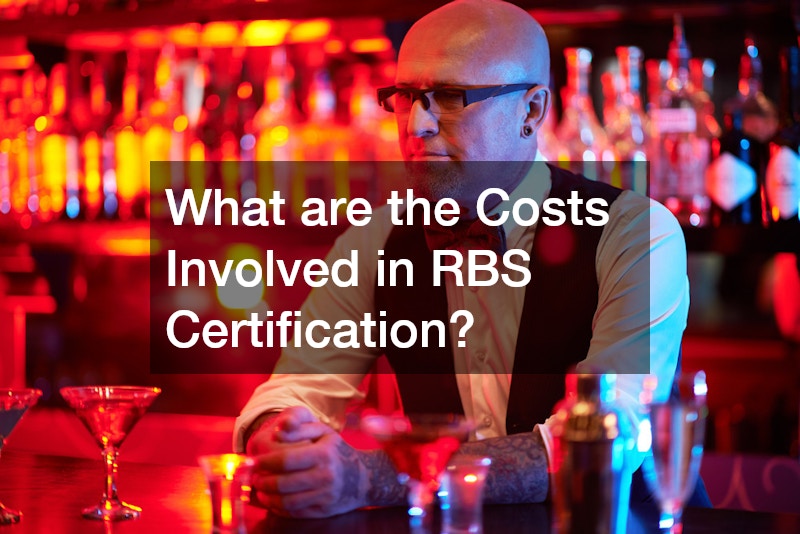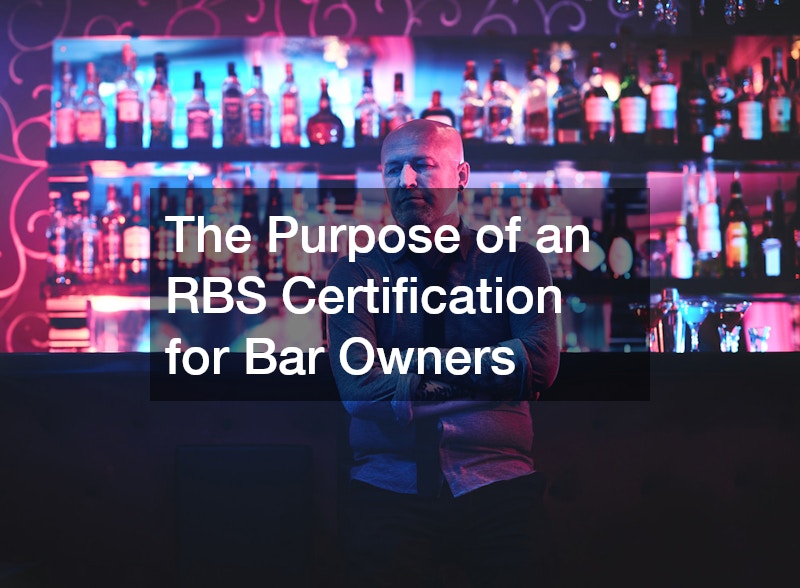Bar ownership comes with great responsibility, and RBS (Responsible Beverage Service) certification is a pivotal tool that aids in responsibly managing alcohol sales. Understanding the importance of RBS certification for bar owners helps in appreciating the positive impacts it has on legal compliance and customer safety.
The essence of RBS certification lies in educating bar owners and staff on responsible alcohol service. This article will delve into the various components of RBS certification, its necessity, benefits, costs, and guidelines for selecting suitable programs.
What is RBS Certification?
Definition and Overview
RBS certification is a training program designed to enhance the responsible service of alcoholic beverages. It consists of structured learning modules that cover topics such as recognizing signs of intoxication and understanding alcohol-related laws.
This certification equips bar owners and their staff with the knowledge to prevent alcohol-related harms. It emphasizes the ethical and legal responsibilities of serving alcohol, promoting a safer drinking environment.
Completion of the RBS program signifies a commitment to ethical standards in the hospitality industry. This commitment is crucial in fostering a culture of responsibility within the establishment.
The Certification Process
The path to obtaining RBS certification involves enrolling in a recognized training program. Participants undergo rigorous training sessions that cover essential topics like checking identification and handling intoxicated patrons.
Assessment in the form of quizzes and exams follows to ensure adequate understanding of the material. A passing score indicates that the individual is equipped to handle the responsibilities associated with alcohol service effectively.
Maintaining certification requires periodic reviews and additional training to stay updated with new regulations and best practices. This ongoing educational approach ensures that bar owners remain compliant with the latest industry standards.
Why is RBS Certification Important for Bar Owners?
Legal Obligations and Compliance
RBS certification is often mandated by state or local laws, making it a critical component for legal compliance. Bar owners who neglect this requirement risk legal consequences and penalties.
This certification serves as a proactive step in aligning with government regulations. It demonstrates a bar owner’s commitment to lawful operations and enhances their credibility with regulatory bodies.
Staying abreast of evolving legal requirements ensures that bar operations remain within the bounds of the law. This minimizes the risk of infractions and protects the bar’s licensure status.
Enhancing Customer Safety
Through RBS certification, bar owners are oriented to identify and mitigate potential hazards associated with alcohol consumption. This knowledge is vital in establishing a safe environment for both patrons and staff.
The certification empowers bar staff to make informed decisions about serving alcohol responsibly. Recognizing signs of intoxication and preventing overservice are key skills reinforced by the program.
Ultimately, RBS certification helps to promote responsible drinking habits among customers. This commitment to safety not only protects customers but also enhances the bar’s reputation as a responsible establishment.
How Does RBS Certification Benefit Bar Businesses?
Risk Management and Liability Reduction
Bar owners face various risks, and RBS certification plays a vital role in risk management strategies. By adopting responsible service practices, the likelihood of alcohol-related incidents diminishes considerably.
Implementing trained protocols for alcohol service reduces the bar’s exposure to liability claims. This protective measure ensures the long-term sustainability of the business.
Being proactive in risk mitigation safeguards the financial interests of the establishment. With fewer incidents, insurance premiums can be more favorable, enhancing the overall profitability of the bar.
Reputation and Customer Trust
A bar’s reputation thrives on the confidence and trust it builds with its patrons. RBS certification showcases the establishment’s commitment to responsible practices, fostering customer goodwill.
Trustworthy establishments often attract a loyal customer base and positive referrals. This not only increases foot traffic but also enhances the bar’s market position.
Emphasizing ethical service translates to positive social media reviews and ratings. Such recognition further solidifies the bar’s reputation as a top-tier and conscientious business in the community.
What are the Costs Involved in RBS Certification?
Initial and Recurring Fees
Enrolling in an RBS certification program incurs initial costs that vary depending on the provider. These upfront fees cover training materials, facilitator costs, and assessment charges.
Beyond the initial investment, bar owners should anticipate periodic recertification fees. Staying updated is essential, necessitating renewal processes that ensure continued compliance with industry standards.
The cost of certification is an investment in the bar’s future stability. By committing to responsible beverage service, bar owners safeguard their profits and reduce liability costs associated with negligence.
Return on Investment
Despite the costs, the RBS certification yields significant financial benefits. Improved risk management strategies save money in potential legal costs and penalties.
Moreover, RBS-certified bars frequently experience increased patronage due to improved reputation and customer trust. This rise in business directly translates into higher revenues.
Over time, the return on investment becomes apparent, as a safer, more compliant bar attracts more business. The certification thus serves not only as a protective measure but as a business growth strategy.






